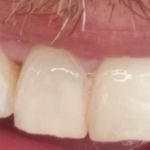Healthy Teeth Habits: Your Guide to Maintaining a Bright Smile
Good oral hygiene is essential for maintaining healthy teeth and gums. Not only does it help prevent cavities, gum disease, and bad breath, but it also ensures your smile remains bright and beautiful for years to come. In this article, we will delve into the best healthy teeth habits you can adopt to keep your oral health in top shape. From brushing techniques to dietary choices, these habits will guide you on the path to optimal dental care.
- 1. Why Healthy Teeth Matter
- 2. The Essential Teeth Care Habits
- 3. The Importance of Diet in Oral Health
- 4. Common Teeth Care Mistakes to Avoid
- 5. How to Choose the Best Dental Products
- 6. When to See a Dentist
1. Why Healthy Teeth Matter
Having healthy teeth goes beyond just having a good-looking smile. It is essential for overall health. Poor oral hygiene can lead to a variety of health problems, including gum disease, tooth decay, and even heart disease. Research has shown that poor dental hygiene is linked to a higher risk of heart attack and stroke. By taking care of your teeth, you're not only protecting your oral health but also improving your general well-being. A healthy mouth can lead to a healthier body, more confidence, and a more comfortable life.
2. The Essential Teeth Care Habits
Brushing, flossing, and regular visits to the dentist are the cornerstones of healthy teeth habits. These are some of the most important daily habits you should adopt:
- Brush Twice a Day: Brushing your teeth at least twice a day is essential for removing plaque and food particles. Use fluoride toothpaste and brush for at least two minutes to ensure that you are effectively cleaning your teeth.
- Floss Daily: Flossing removes debris and plaque from between your teeth where your toothbrush may not reach. Make it a habit to floss every day, preferably before bedtime, to ensure that your teeth stay clean overnight.
- Use Mouthwash: Mouthwash helps kill bacteria and freshen your breath. While it's not a substitute for brushing and flossing, it can be a good addition to your daily routine.
- Replace Your Toothbrush Regularly: Change your toothbrush every 3-4 months, or sooner if the bristles are frayed. A worn-out toothbrush can be less effective at cleaning your teeth.
3. The Importance of Diet in Oral Health
Your diet plays a critical role in the health of your teeth and gums. What you eat directly affects your oral health. Here are a few dietary habits to consider for healthy teeth:
- Limit Sugary Foods: Sugar is a major contributor to tooth decay. Bacteria in your mouth feed on sugar, producing acids that erode tooth enamel. Try to reduce your intake of sugary snacks and drinks, especially between meals.
- Eat Calcium-Rich Foods: Calcium helps keep your teeth strong and healthy. Dairy products, leafy greens, and fortified foods are excellent sources of calcium.
- Stay Hydrated: Drinking plenty of water helps wash away food particles and bacteria in your mouth. It also helps maintain a good saliva flow, which is essential for neutralizing acids and preventing tooth decay.
- Snack on Teeth-Friendly Foods: Crunchy fruits and vegetables like apples and carrots help clean your teeth as you eat. They also stimulate saliva production, which protects your teeth from cavities.
4. Common Teeth Care Mistakes to Avoid
Even with the best intentions, it's easy to make mistakes when it comes to oral hygiene. Here are some common mistakes to avoid:
- Brushing Too Hard: Brushing your teeth too hard can cause your gums to recede and wear down tooth enamel. Use gentle, circular motions with a soft-bristled brush.
- Not Replacing Your Toothbrush: As mentioned earlier, a worn-out toothbrush is less effective at cleaning your teeth. Don't forget to replace your toothbrush every few months.
- Skipping Flossing: Skipping flossing is one of the biggest mistakes people make. Flossing helps remove food particles and plaque that brushing alone can't reach.
- Not Seeing the Dentist Regularly: Even with good oral hygiene at home, regular dental checkups are essential. Dentists can detect problems early and provide professional cleaning to maintain your oral health.
5. How to Choose the Best Dental Products
With so many dental products available, it can be overwhelming to choose the right ones for your needs. Here are some tips to help you select the best products for your oral care routine:
- Choose Fluoride Toothpaste: Fluoride helps prevent cavities and strengthens enamel. Look for a toothpaste that contains fluoride to ensure effective protection.
- Pick a Soft-Bristled Toothbrush: A soft-bristled toothbrush is gentle on your gums and enamel while still being effective at cleaning your teeth.
- Opt for ADA-Approved Products: The American Dental Association (ADA) Seal of Acceptance is a good indicator that a product has met the ADA's high standards for safety and effectiveness.
6. When to See a Dentist
Even with the best daily habits, regular dental visits are essential for maintaining healthy teeth. You should see a dentist for a professional cleaning and checkup at least twice a year. Additionally, visit your dentist if you experience:
- Persistent tooth pain or sensitivity
- Bleeding gums
- Bad breath that doesn’t go away
- Visible signs of tooth decay or cavities
Early detection and professional care can prevent more serious dental issues down the road.
By following these healthy teeth habits, you can ensure a lifetime of bright smiles and healthy teeth. Ready to take your oral care to the next level? Click here to explore our range of expert-recommended dental products and services!
<>






 Western Dental & Orthodontics4.0 (534 review)
Western Dental & Orthodontics4.0 (534 review) Bruce L Rothschild DDS & Associates PLLC0.0 (0 review)
Bruce L Rothschild DDS & Associates PLLC0.0 (0 review) Cherry Hill Dental Excellence5.0 (534 review)
Cherry Hill Dental Excellence5.0 (534 review) Maui Whitening Orlando4.0 (32 review)
Maui Whitening Orlando4.0 (32 review) Universal Dentistry4.0 (144 review)
Universal Dentistry4.0 (144 review) Dental Faculty Practice3.0 (37 review)
Dental Faculty Practice3.0 (37 review) The Importance of Oral Health Education During Pregnancy for a Healthy Pregnancy
The Importance of Oral Health Education During Pregnancy for a Healthy Pregnancy Best Tips for Brushing Your Teeth Properly for Healthy Gums: Essential Techniques for Oral Health
Best Tips for Brushing Your Teeth Properly for Healthy Gums: Essential Techniques for Oral Health Why Skipping Dental Checkups Can Lead to Bigger Oral Health Problems
Why Skipping Dental Checkups Can Lead to Bigger Oral Health Problems Advantages of Porcelain Dental Restorations
Advantages of Porcelain Dental Restorations How Can Diabetes Cause Tooth and Gum Problems? Preventing and Managing Oral Health Issues
How Can Diabetes Cause Tooth and Gum Problems? Preventing and Managing Oral Health Issues Healthy Habits for Promoting Good Oral Health and Hygiene: Tips for a Healthy Smile
Healthy Habits for Promoting Good Oral Health and Hygiene: Tips for a Healthy Smile